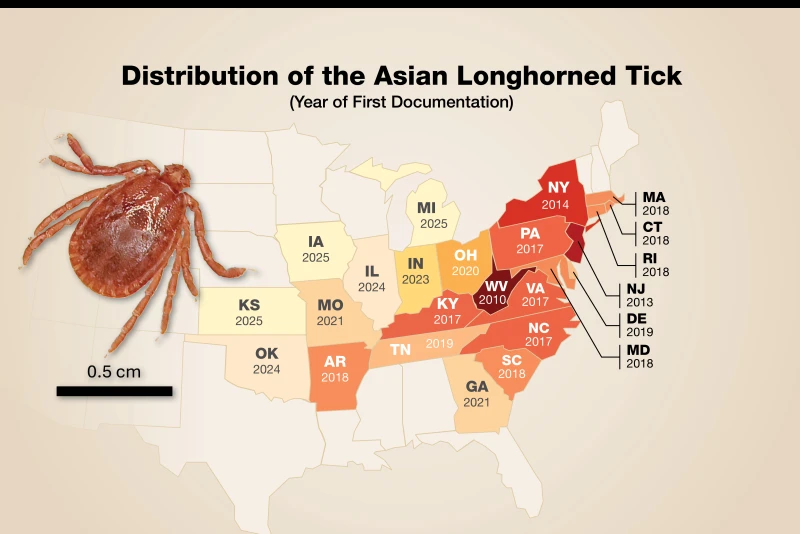
The Asian Longhorn Tick Moves West to Kansas
The Asian longhorn tick (ALHT) has now been identified in Kansas. The tick was submitted to the Kansas Department of Health and Environment for identification after being found on a dog in Franklin County last week. This represents the western most occurrence of the tick; it was last found in Iowa in June, 2025.
ALHT was first identified in the U.S. in 2017 in New Jersey. Since then it has gradually spread westward and has been documented in 21 states according to USDA.
These ticks are a threat to both human and animal health. ALTH are known to carry Theileria, a protozoan parasite that infects red and white blood cells. Theileria can lead to anemia and even death. Typically, cattle affected by Theileriosis will show signs of lethargy and difficulty breathing.
Because the female tick can reproduce without a male and lay up to 2,000 eggs at a time, a single tick can lead to a major infestation on a single animal leading to reduced growth and production, and, in the most severe cases, death from blood loss.
Cattle producers should be on high alert for external parasites on their animals. While their activity might decrease in the winter months, the ALTH can survive for up to six months off an animal and is tolerant of the cold.
For more information on the ALHT, check out:
Questions about this Article?:

Copyright © 2021-2025. All rights reserved
This website stores cookies on your computer. These cookies are used to collect information about how you interact with our website and allow us to remember you. We use this information in order to improve and customize your browsing experience and for analytics and metrics about our visitors on this website. To find out more about the cookies we use, see ourPrivacy Policy.